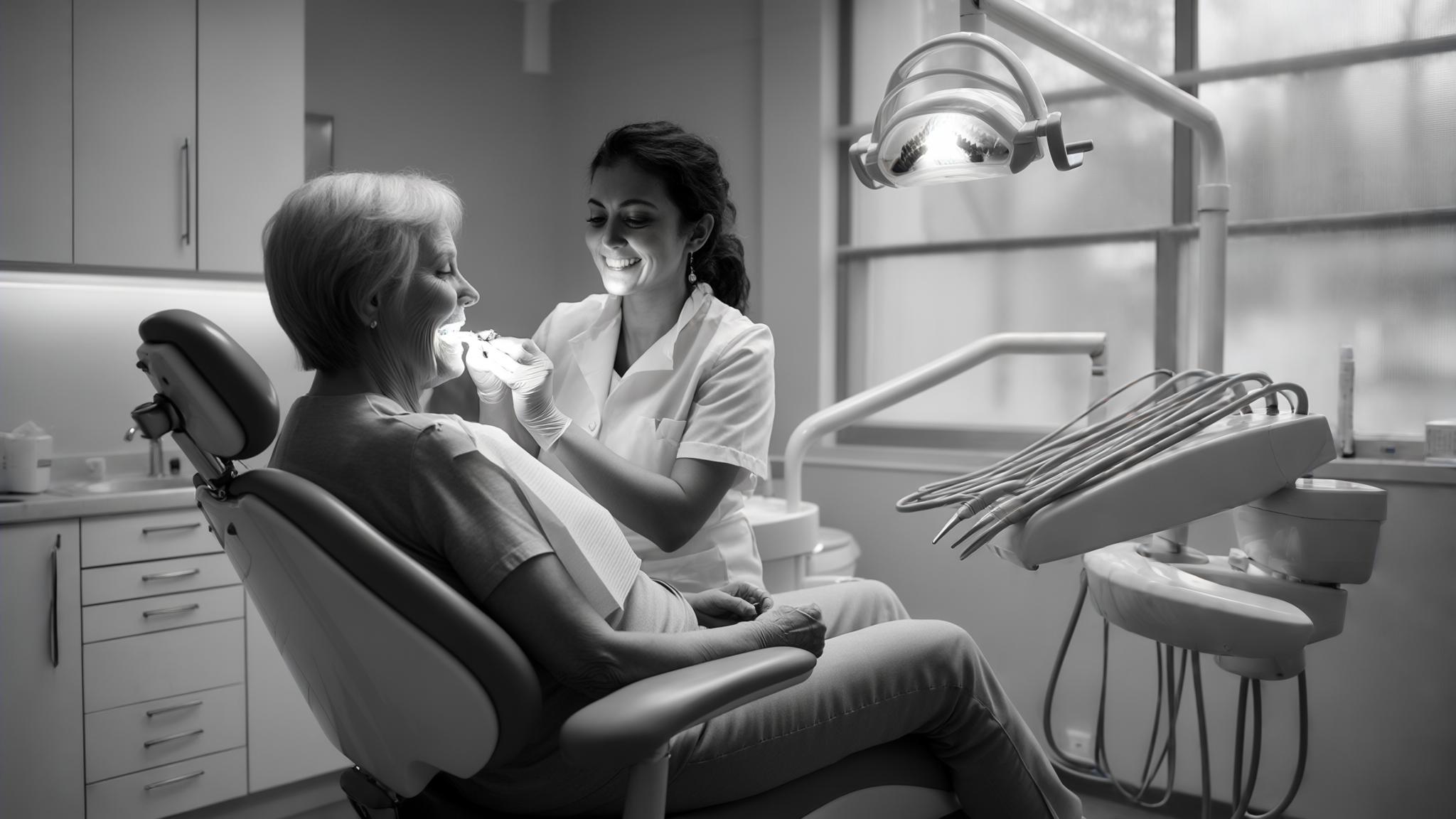Introduction
As we journey through life, our bodies naturally undergo changes, and our oral health is no exception. For aging populations, maintaining oral health becomes increasingly important, not just for a bright smile, but for overall health. Oral health can significantly impact general well-being, influencing conditions such as heart disease and diabetes. This article focuses on the crucial role of dental check-ups in preserving oral health for seniors, offering guidance and insights to help you navigate this essential aspect of health care.
Understanding Oral Health in Aging
1.1 Changes in Oral Health with Age
As we age, our oral health needs evolve. Common dental issues faced by older adults include gum disease, tooth decay, and dry mouth. These conditions arise due to changes in oral tissues and salivary glands. For instance, gums may recede, exposing more of the tooth's surface to potential decay, while decreased saliva production can lead to dry mouth, increasing the risk of cavities and infections.
1.2 The Connection Between Oral Health and General Health
Oral health is a window to our overall health. Poor oral hygiene has been linked to systemic diseases such as heart disease and diabetes. Inflammation from gum disease can contribute to heart conditions, while infections in the mouth can complicate diabetes management. Thus, maintaining oral health is not just about teeth and gums; it's vital for your entire body's well-being.
The Role of Dental Check-Ups
2.1 What to Expect During a Dental Check-Up
A dental check-up typically includes a thorough examination, professional cleaning, and sometimes X-rays. These check-ups are crucial for early detection of dental problems. Dentists look for signs of decay, gum disease, and other issues that might not be visible or painful yet. Early intervention can prevent minor issues from becoming major health problems.
2.2 Frequency of Dental Check-Ups for Seniors
How often should seniors visit the dentist? Generally, it's recommended to have a check-up every six months. However, this can vary based on individual health conditions and existing dental issues. Some seniors might need more frequent visits if they have ongoing dental concerns or chronic health conditions that affect their oral health.
Specific Dental Concerns for Seniors
3.1 Gum Disease
Gum disease, including gingivitis and periodontitis, is prevalent among seniors. Gingivitis is the early stage, where gums become inflamed and bleed easily. If untreated, it can progress to periodontitis, where the gums pull away from the teeth, leading to tooth loss. Watch for signs like swollen gums or persistent bad breath.
3.2 Tooth Decay and Cavities
Tooth decay is not just a problem for children; it can occur frequently in seniors too. As gums recede, more of the tooth surface is exposed, making it vulnerable to decay. Fluoride toothpaste and treatments can help strengthen enamel and remineralize early decay.
3.3 Dry Mouth (Xerostomia)
Dry mouth is a common issue in older adults, often caused by medications or health conditions. It can lead to difficulties in speaking, eating, and an increased risk of tooth decay. Staying hydrated, using saliva substitutes, and avoiding tobacco can help manage symptoms.
3.4 Oral Cancer Screening
Oral cancer screenings are a vital part of dental check-ups. Early detection is key to successful treatment. Risk factors include tobacco use, alcohol consumption, and a history of cancer. Look out for signs like sores that don’t heal or unusual lumps in the mouth.
Maintaining Oral Health Between Check-Ups
4.1 Daily Oral Hygiene Practices
Brushing twice a day and flossing daily are crucial for seniors. Electric toothbrushes can be easier to use for those with limited dexterity. Consider toothpaste and mouthwash designed for sensitive teeth or dry mouth.
4.2 Nutrition and Oral Health
A balanced diet rich in calcium and vitamins supports oral health. Foods like dairy products, leafy greens, and nuts are beneficial. Limit sugary snacks and drinks, which can increase the risk of cavities.
4.3 Managing Dental Anxiety
Many seniors experience anxiety about dental visits. This fear can stem from past experiences or concerns about discomfort. Communicate openly with your dentist about your fears, and consider relaxation techniques such as deep breathing or listening to music during appointments.
Resources and Support
5.1 Finding the Right Dentist
Choosing a dentist who understands the unique needs of seniors is important. Look for someone experienced in geriatric dentistry and comfortable discussing all aspects of your oral health.
5.2 Community Resources
Many communities offer programs to help seniors access affordable dental care. Look into local dental clinics, insurance options, and senior health programs that provide financial assistance or reduced-cost services.
Conclusion
Regular dental check-ups are a cornerstone of maintaining oral health as you age. They not only keep your smile bright but also play a critical role in your overall health strategy. By prioritizing dental care, you enhance your quality of life and well-being. Remember, proactive dental care is a lifelong commitment that pays dividends in health and happiness.
References
- American Dental Association: Oral Health Topics
- Mayo Clinic: Aging and Dental Health
- Centers for Disease Control and Prevention: Oral Health Conditions

